Table of Contents
- Normal And Abnormal Panting In Dogs
- Signs Of Abnormal Panting
- Possible Causes Of Canine Panting And Restlessness At Night
- Noise Sensitivity And Noise Phobia
- Separation Anxiety
- Generalized Anxiety Symptoms
- Fear-Based Panting Symptoms
- Stress
- Side-Effects Of Medications
- Temperature And Humidity
- Pain, Injury or Trauma
- Allergic Reactions
- Poisoning
- Pregnancy And Lactation Issues
- Dog Dementia
- Cushing’s Disease
- Respiratory Disease
- Heart Disease
- Heatstroke
- Obesity
- What You Can Do If Your Dog Is Panting And Restless At Night?
- Conclusion
Dogs don’t have sweat glands. The primary way that dogs expel heat is through their paw pads but if this isn’t expelling sufficient heat they pant. Panting is a way to regulate body temperature; expelling body heat through the mouth and exchanging it for fresh, cooler air.
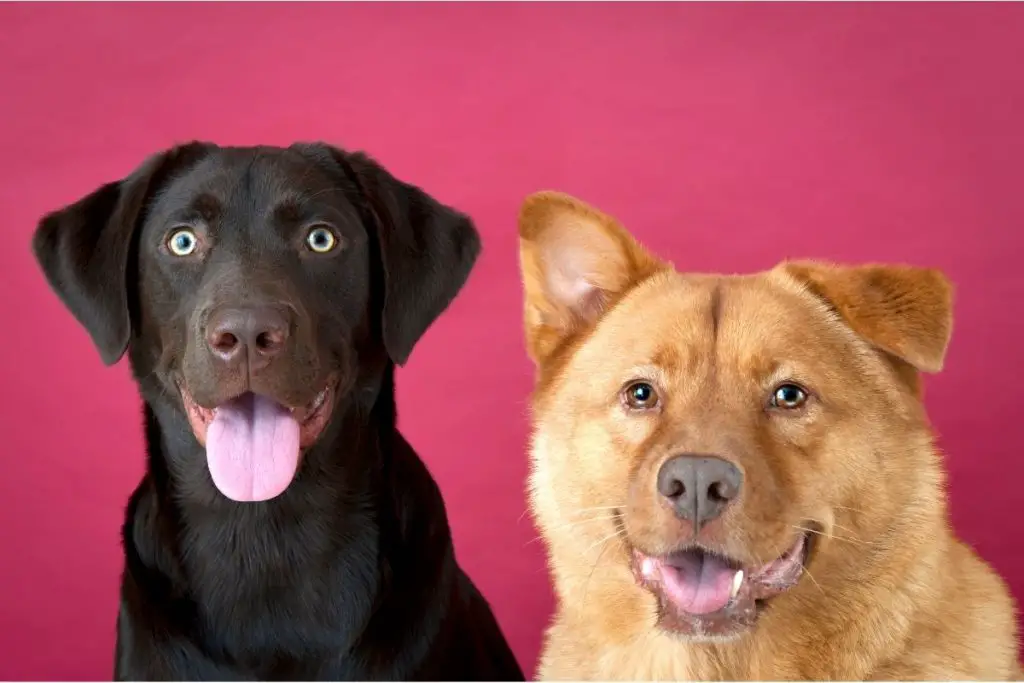
Panting during the day is influenced by temperature, humidity, exercise, excitement. At night your dog should be resting so only temperature and humidity are relevant. Panting at night, especially if the weather conditions are optimal for your dog, is cause for concern.
Normal And Abnormal Panting In Dogs
Count your dog’s breaths per minute when they are resting and after exercise to get an idea of what is normal for your dog. In general, dogs breathe between 15 and 20 times a minute. Anything from 35 to 40 breaths per minute while resting is abnormal.
If your dog’s breathing is abnormal, take your dog to a cooler, better-ventilated area. Allow half an hour to an hour before checking again. If the problem persists, contact a vet. Short-nosed, or brachycephalic, dogs, such as Pugs or Bulldogs tend to pant more.
Signs Of Abnormal Panting
Restlessness often accompanies abnormal panting but there are also other signs of abnormal panting:
- Strained or labored breathing.
- Harsher or higher-pitched panting.
- Drooling.
- Licking a specific place on the body.
- Crying or whining.
- Behavior like vomiting.
Possible Causes Of Canine Panting And Restlessness At Night
Noise Sensitivity And Noise Phobia
Nearly 40 % of dogs struggle with noise sensitivity. Dogs have more sensitive hearing than us. At night, ambient noises like traffic are lower so your dog hears other sounds more intensely. Dogs with a noise phobia may show fearfulness symptoms.
Loud sounds such as fireworks and thunderstorms, or gunshots, are obvious triggers. Medications, pheromone dispensers, and counterconditioning can help with noise phobia. Leaving music playing may help.
Separation Anxiety
Noise sensitivity and separation anxiety are the two most common causes of anxiety and panting at night. Around 14 – 17 % of dogs suffer from separation anxiety, which is closely linked to hyper-attachment, lack of exercise or stimulation or genetic factors, such as a tendency towards fearfulness.
The symptoms of separation anxiety only appear from the moment the dog first suspects you are leaving to within about 30 minutes after you have left. The anxiety should go away the moment you return.
Besides panting due to separation anxiety, your dog might vocalize by howling or barking, engage in destructive behavior, such as chewing or digging, try to escape, or urinate in the house. Consult a vet about calming medication or products and increase the amount of structured exercise. Consult a certified behaviorist in extreme cases.
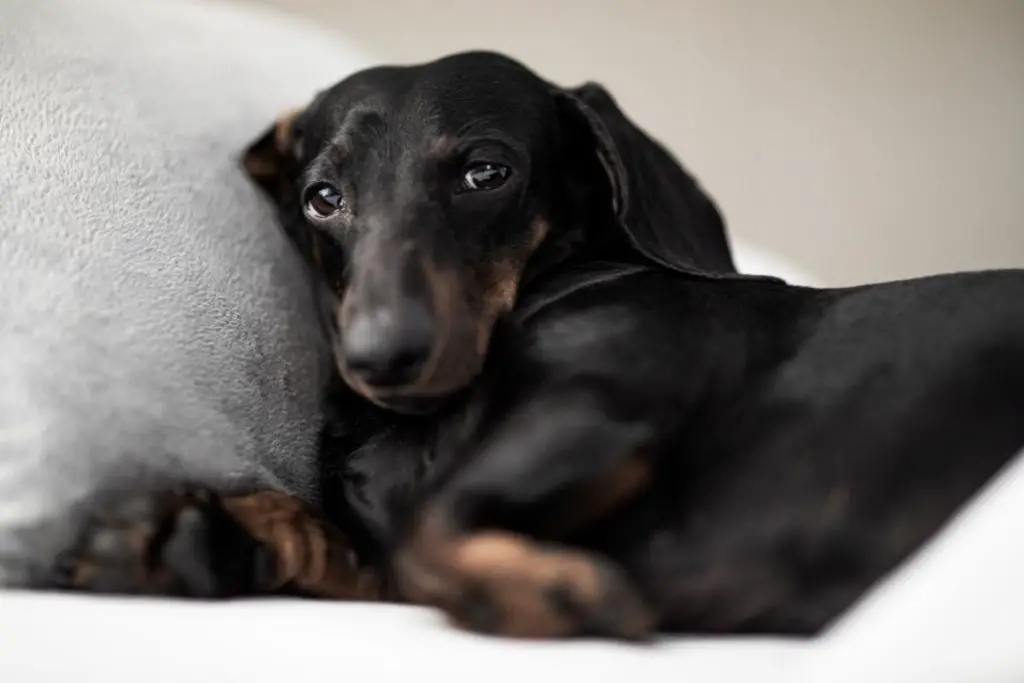
Generalized Anxiety Symptoms
- Heavy panting
- Drooling
- Shaking
- Restlessness and pacing
- Vocalizations such as whining, crying, barking, or howling
- Involuntary urination or defecation
- Digging
- Escaping or trying to escape
- Self-harm such as licking, chewing, or biting themselves.
- Damaging property through destructive chewing
- One study showed a prevalence of general fearfulness in over a quarter of the dogs researched.
Fear-Based Panting Symptoms
- Restlessness
- Trembling
- Chewing
- Making desperate attempts to escape
- Hiding
- Signs of ‘shutting down.’
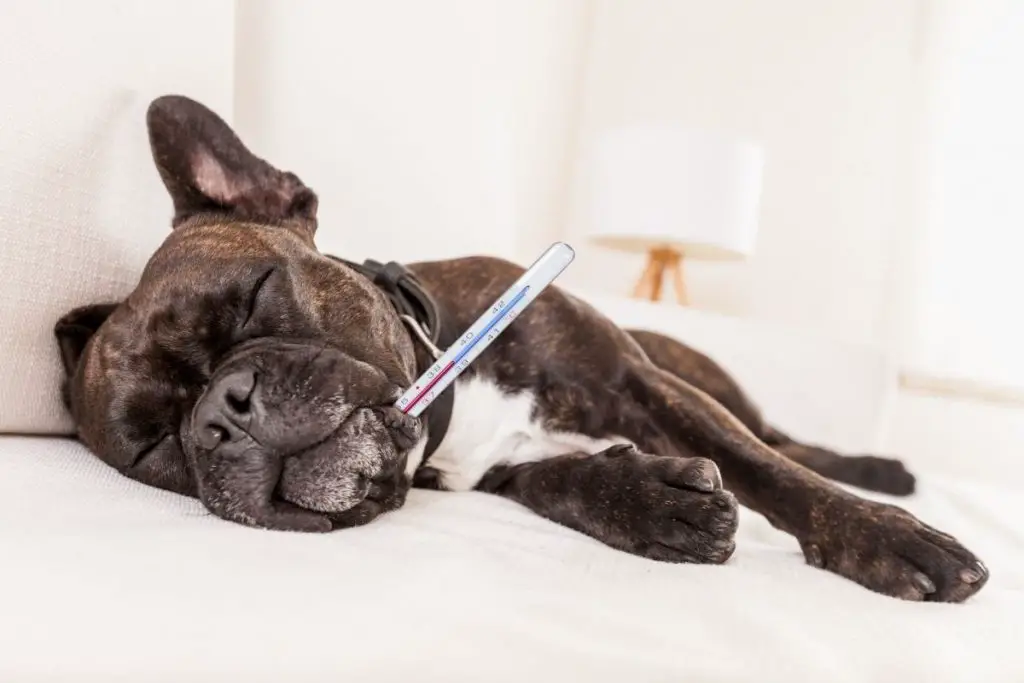
Stress
A stressed dog may use panting as a way to calm down. Stress can be due to a stressful home environment or a major change.
Side-Effects Of Medications
Prednisone or other corticosteroids may cause excessive panting.
Temperature And Humidity
High temperatures above 95°F (35°C) and/or humidity at night cause panting and restlessness. Puppies and older dogs are particularly at risk. Humidity interferes with the process of panting, causing dogs to overheat more quickly.
Pain, Injury or Trauma
- Look for enlarged pupils, refusal to eat, restlessness, lameness, orbiting, and licking the painful area.
- Gently palpate your dog’s body to look for places that seem to cause discomfort when touched.
- Dogs with pain conditions like arthritis will pant and find it hard to settle.
- Severe distress needs medical attention immediately.
Allergic Reactions
You may need to induce vomiting or get to emergency services.
Poisoning
If you suspect poisoning, induce vomiting and get your dog to emergency services.
Pregnancy And Lactation Issues
- In pregnant bitches, excessive panting may be a sign of labor.
- In pregnant or lactating bitches, excessive panting is an early symptom of eclampsia or low calcium levels in the blood. This is a serious condition that can be fatal within an hour. The panting is usually followed by tremors and difficulty standing.
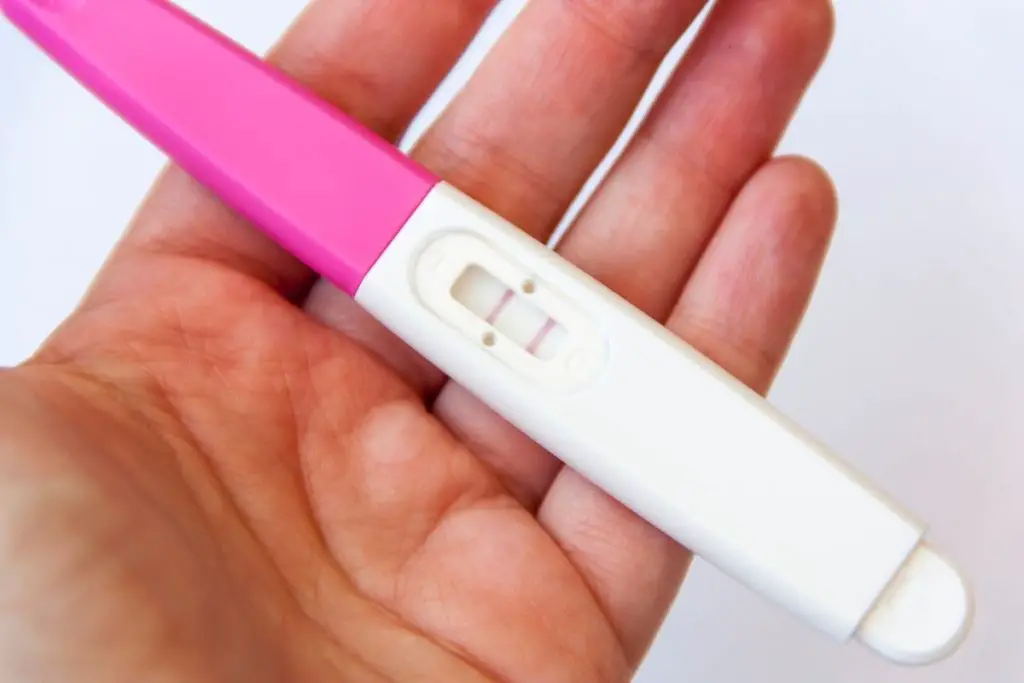
Dog Dementia
Older dogs are more at risk.
Canine Cognitive Disorder can cause sleeplessness and forgetfulness.
Forgetfulness about their surroundings can result in anxiety and will cause panting and restlessness in the dog.
Odd behavior; such as incontinence, circling, or wandering.
Cushing’s Disease
Cushing’s syndrome causes the adrenal glands to produce too much cortisol.
Symptoms are panting, increased thirst, hunger, increased urination, hair loss, and a pot belly.
Older dogs are more at risk.
Respiratory Disease
Respiratory disease affects breathing capabilities, making it hard for your dog to get oxygen into the bloodstream. Your dog may struggle to pant normally even after mild exercise.
Lung tumors or pneumonia cause labored breathing.
Dogs with laryngeal paralysis pant much more at night, have noisy, high-pitched breathing, hoarse barking, tongues that become darker or purple, a dislike for being touched or restrained, reduced ability to exercise.
A blue, purple, or grey tongue, rather than a healthy pink tongue, is a sign of oxygen deficit, requiring immediate medical attention.
Heart Disease
Difficulty breathing, heavy breathing after very mild movement, decreased ability to exercise, excessive panting and coughing can be a symptom of heart disease or heart failure.
Heatstroke
Heatstroke can occur if temperatures and/or humidity levels are high. Cool your dog down by wetting your dog and ensure that your dog is kept hydrated if temperatures exceed 106°F (41°C). Short-nosed breeds like pugs are prone to heat exhaustion or to heatstroke.
Never leave dogs alone in cars and especially not under hot and/or humid conditions. If you think your dog has heatstroke, seek medical treatment immediately.
Obesity
Obesity may make your dog pant more, even if it doesn’t feel that warm.
What You Can Do If Your Dog Is Panting And Restless At Night?
- Seek medical attention.
- Hydrate
- Ventilate
- Cool by wetting.
- Reduce stress and anxiety.
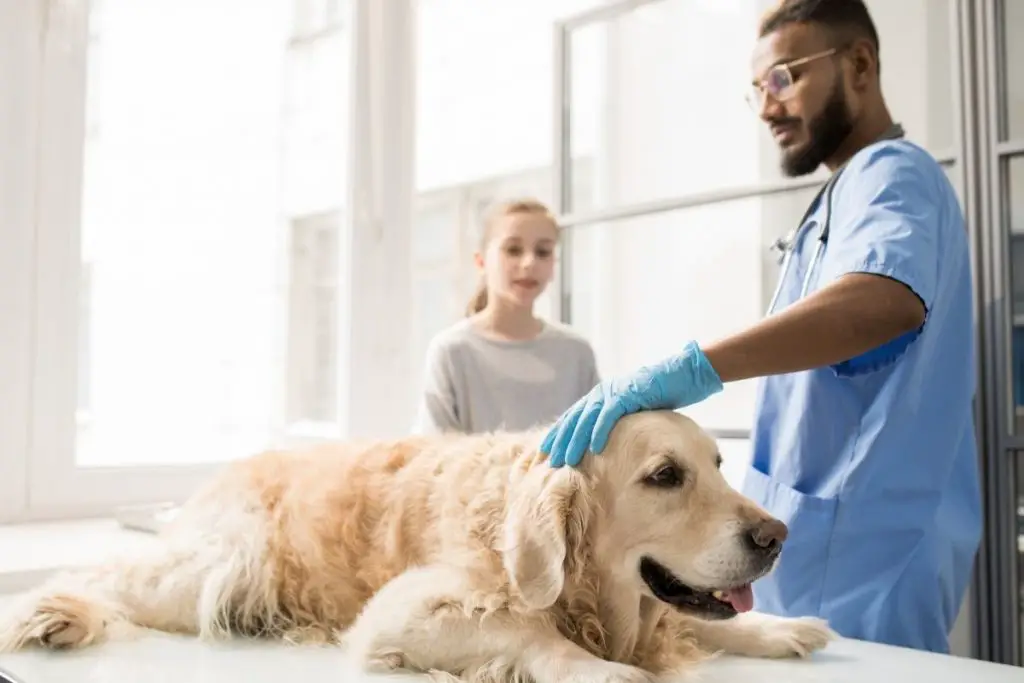
Conclusion
Excessive or abnormal panting, particularly at night, and the associated restlessness, should not be ignored. Find the cause and deal with it.
See https://pawsafe.com/blogs/news/dog-panting-at-night
See https://dogsbestlife.com/dog-health/panting-at-night/
